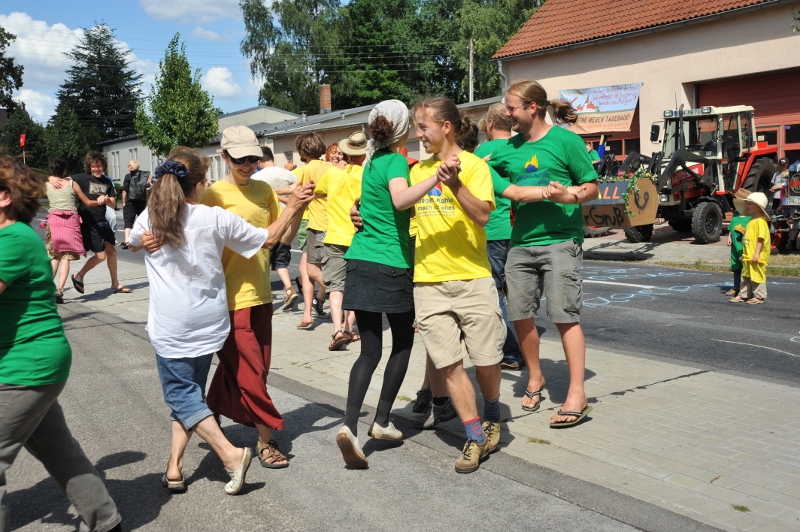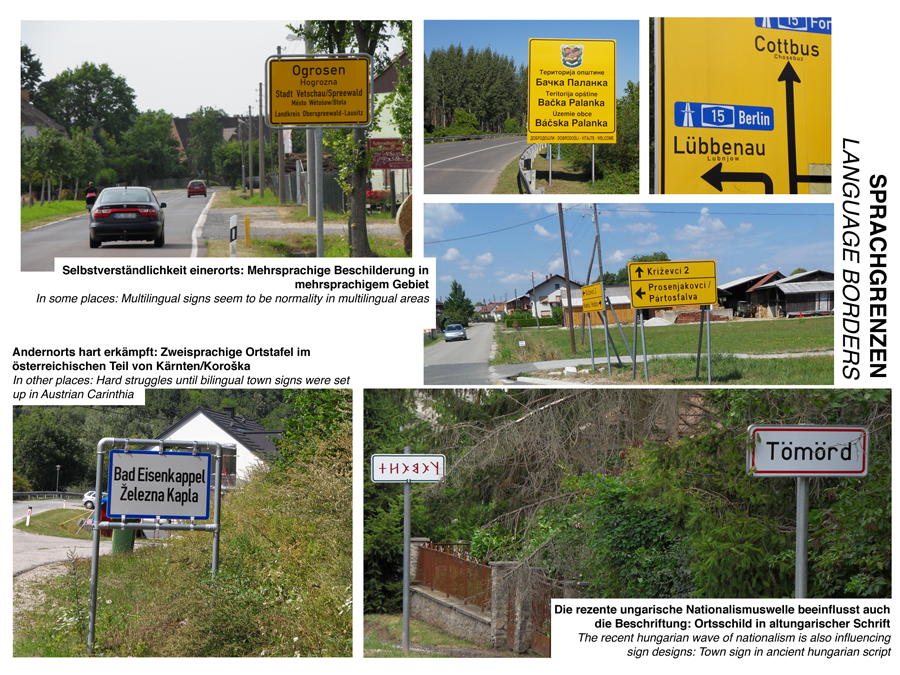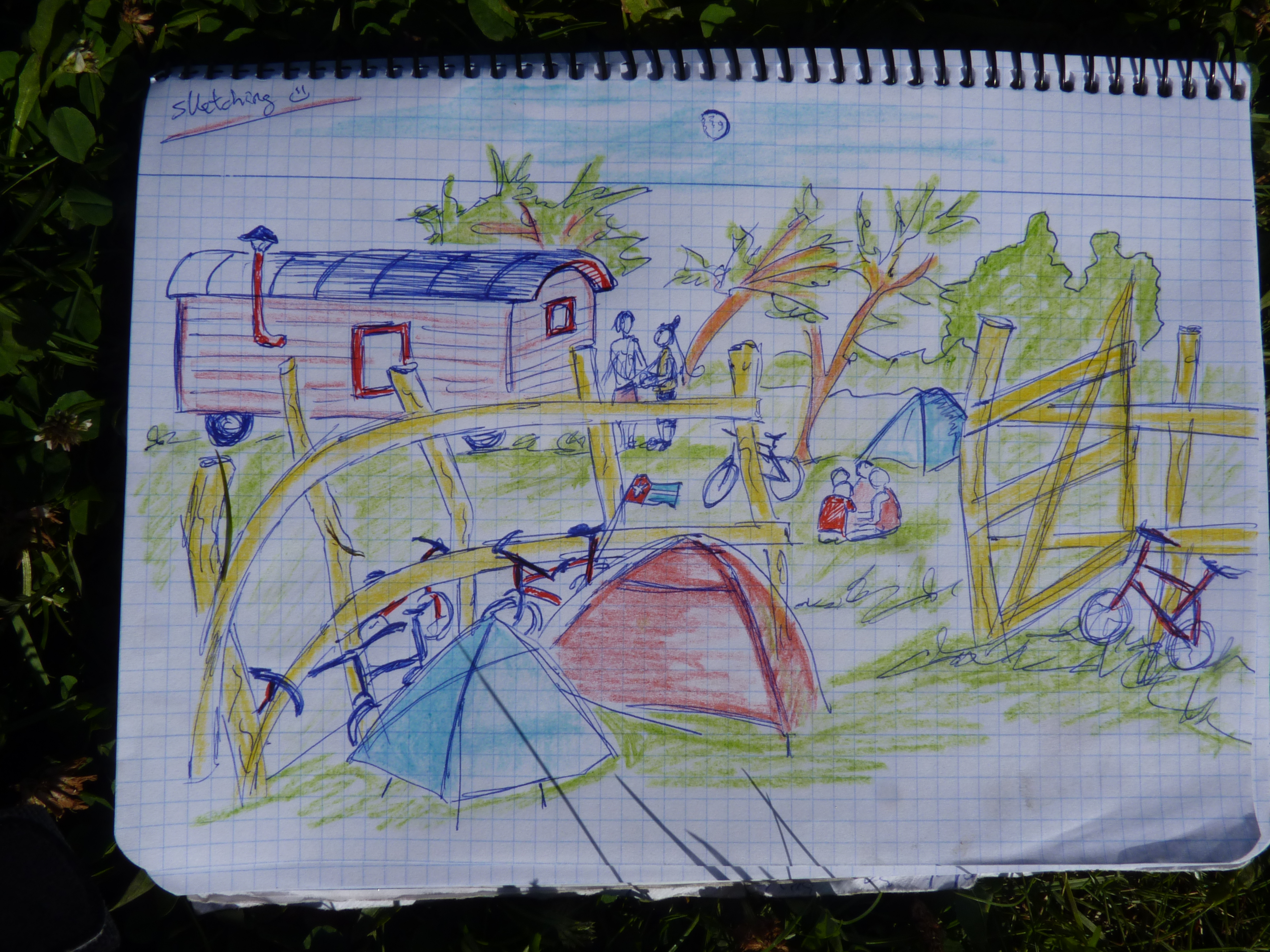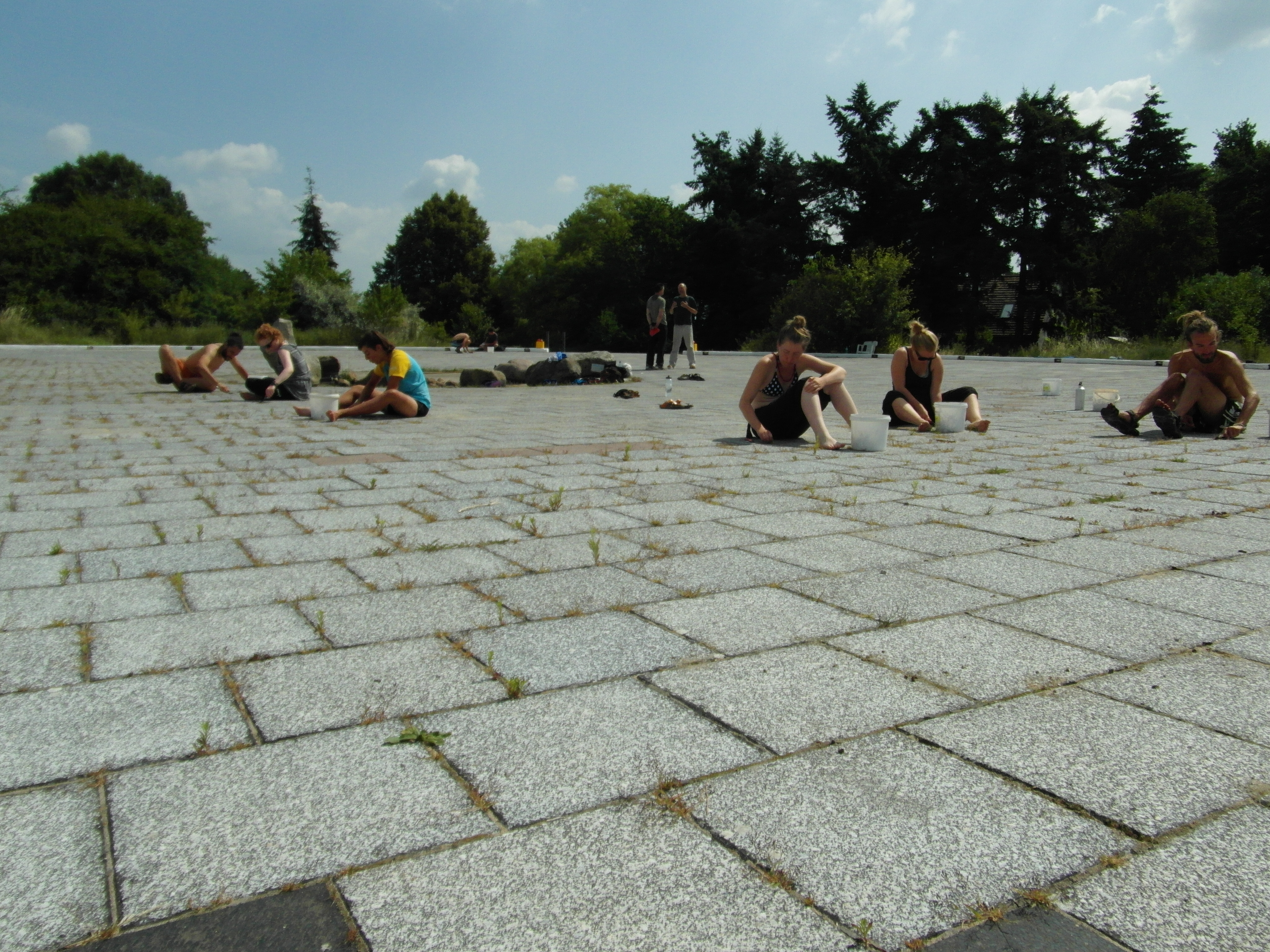Coal is just dead dinosaurs – 20th July

So my Uncle used to say. I’m not so sure of the science behind that, but this dinosaur is very much alive! Its arms flail around scaring small children under the guidance of cyclists and campers until it reaches the centre of the village. It’s stomache opens up and regurgitates a hosts of black biodegradable balloons with messages tied to them praying for the village to be spared. They drift off into the distance as local Sorbian counter-polka animates us into dancing the traditional Sorbian circle dances we have just been taught. It’s a sunny Saturday afternoon, and we are…









